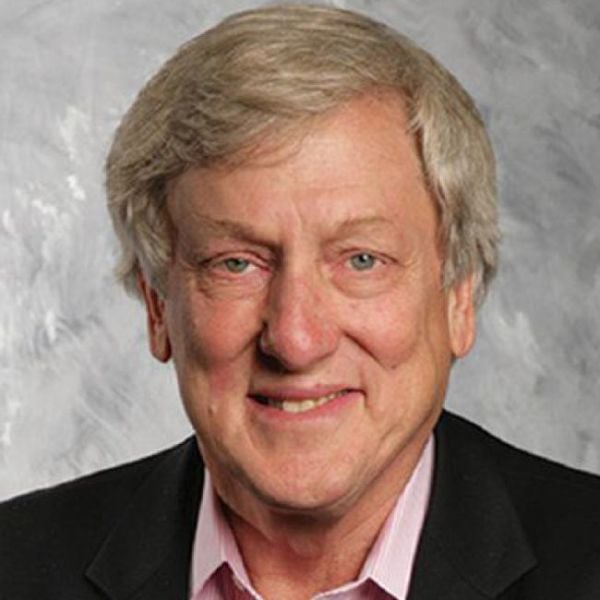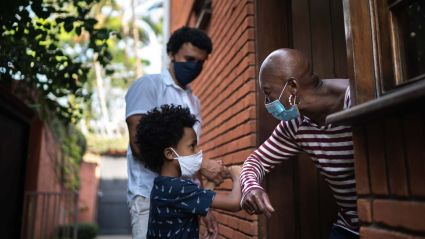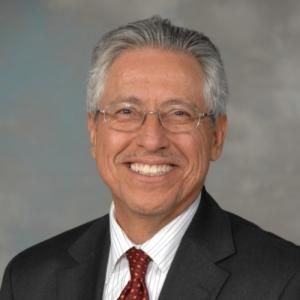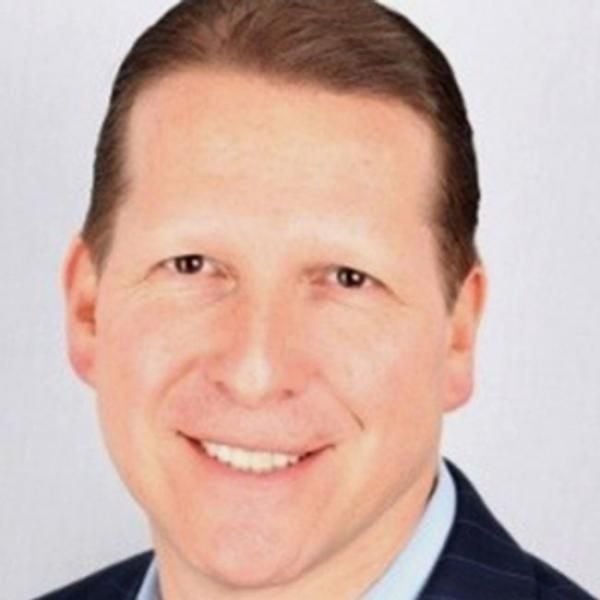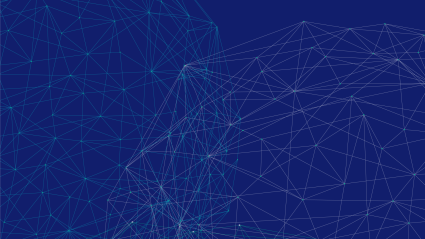
Key Takeaways
The following are a few of the main takeaways from COVID-19 Africa Watch’s conversation with Dr. Abasi Ene-Obong, CEO of 54gene:
-
Africa is the most genetically diverse continent on Earth, making it particularly important to undertake genomics research and explore the potential of precision medicine in Africa.
-
More and more Africans are leaving well-paying jobs in the US and UK to returning to their home countries to explore entrepreneurial opportunities there. There is a lot of optimism and momentum among young entrepreneurs who are shaping the future of Africa and who need active support from their governments, investors, and the international community.
-
54gene launched in 2019 and in a year had already raised over $20 million, a first for a health tech startup on the continent. Looking ahead, it aims to continue building African talent so that African companies can actively participate in drug discovery and in bringing affordable precision medicine to Africa.
The interview was conducted by Oluwatoyin Alake, an IFC-Milken Institute Capital Market Scholar from The Nigerian Stock Exchange. A transcript is available below.
Note: This interview took place in Nigeria in the midst of the #EndSARS protest movement, in which young Nigerians are demanding government accountability and action against police brutality.
Transcript
Interviewer
My name is Oluwatoyin Alake. I head secondary markets at The Nigerian Stock Exchange. I’m also an alumnus of the International Finance Corporation-Milken Institute Capital Markets Program.
With me this afternoon is Dr. Abasi Ene-Obong. Dr. Abasi Ene-Obong is the CEO of 54gene, a health technology company. They have been doing great work in terms of genomics research in Africa. Welcome, Dr. Ene-Obong.
Dr. Abasi Ene-Obong
Thank you, Toyin, and feel free to call me Abasi.
Interviewer
Okay. Thank you. How did you get into genomics research and not just genomics research, but with an interest in Africa? What spurred your interest and your entrepreneurial journey?
Dr. Abasi Ene-Obong
Thank you, Toyin. Thank you for the compliment, but I should mention that we have only just started. There’s still a lot that we want to accomplish. In the field of genomics, Africa is the new bright spot and that’s why I was interested: the fact that I’m African and the fact that understanding African genomics really opens up the ability to understand human disease. When I say human disease, I mean both for Africans and non-Africans alike, and Africa holds enormous discovery power. And when I say discovery power, I mean the potential to understand biological mechanisms that could then be used to create new drugs or diagnostic tests.
And I’m sure you might be thinking, why Africa? That’s really because modern humans originated in Africa about 200,000 years ago. Every population that exists today on Earth immigrated out of Africa. In genetics, there’s what we call a bottleneck effect. The first set of migrations that occurred out of Africa took just a small amount of the genetic diversity of the continent. And more bottleneck effects were seen as populations migrated from Africa to Asia to Europe. But the bulk of that genetic diversity has stayed on the continent. And so, Africa has been able to conserve genetic diversity, or genetic variation. Now, when you are looking to understand biology and looking to create new drugs or new diagnostics, it’s that variation that is very interesting. That’s what holds the potential for all these discoveries. So that’s why we’re doing this in Africa.
Interviewer
It’s very obvious ,of course, that there needs to be a lot more contribution to preventive medicine for Africa, from Africans. We’re really glad to hear about the work that you are doing. You said your company is a young company, and I think it’s kudos to you how much you’ve been able to achieve in very little time. Just looking at that little period and all of the disruptions that we’ve seen with COVID-19, can you tell us about how all of this has affected what you do in Africa?
Dr. Abasi Ene-Obong
The pandemic took us all unawares. I remember I had just gotten back from Europe. This was in February and I was sick. I was probably sick with COVID-19, but at the time it was very early days and there was no way to test. I could see where everything was going to go, and I called my team together and said, “We are a research company. We’ve been looking at genetics. It’s the same skillset that is needed to do the diagnosis of COVID-19 in Nigeria or anywhere in the world.”
At the time, there were only five laboratories in the entire country of Nigeria that could do tests and those laboratories were all public-owned. They were averaging somewhere around 200 tests a day. I knew that there was no way, in a country of 200+ million people, that 200 tests a day were going to suffice. So because we had already built a team of people who had the molecular skillset, and we had a molecular lab, we quickly paused some of our other operations to provide help to the country. We did this in a few different ways. The first step was, we quickly put together a small fund with some of our partners which we used to equip government labs, to increase the capacity. Let’s try and increase testing capacity from somewhere around 200 tests a day to maybe a 1,000- 1,500 a day.
“We became the first private group to be approved to provide COVID-19 tests in Nigeria. And we immediately started partnering with state governments, in states where there were no labs at all.”
We were able to quickly deploy this. We got the equipment to public labs across the country. That increased the capacity, but there was need to do more. We now had to start thinking about how we ourselves could actually provide some of those tests because that was what the country needed. We became the first private group to be approved to provide COVID-19 tests in Nigeria. And we immediately started partnering with state governments, in states where there were no labs at all.
It didn’t just end with putting in the infrastructure. We saw that there was a need to keep bringing in talent. If you look at the history of Nigeria, the educational system has, for lack of a better term, rotted. Lots of the students who are very brilliant and who had done discourses theoretically had not yet done practicals because there are no labs. So we quickly set up a training program and 54gene has now trained more than 100 people in molecular diagnostics techniques, as well as another 100+ people in sample collection.
Interviewer
You have spoken to how first, you just wanted to have a health impact, pre-COVID-19, and then you also leveraged COVID-19. Rather than seeing the pandemic as a deterrent to your goal, you saw an opportunity to have greater impact. Your impact goes beyond health – you’ve also facilitated training of youth and youth employment. I think these are the kind of conversations we should, as young people in Africa, be highlighting. What would you say is the current trend in entrepreneurship, in technology, in innovation? How did COVID-19 present opportunities for people in your space as entrepreneurs or innovators to do something really big?
Dr. Abasi Ene-Obong
So I’m going to say something, and I’m not sure if this will blow the horn, but I would say Africa is rising. And Africa is rising because of the young people in Africa. Over the past five to, say, ten years, I have seen how young people have decided that they’re not going to wait for the government to act and have created companies that generate lots of revenue and also employment opportunities and impact. And that is only accelerating. Recently there was the news that Paystack was acquired for $200 million in Nigeria.
54gene launched and in a year raised over $20 million in health tech. That is something that hasn’t happened for an African health tech company before. I am seeing more and more young people who have brilliant ideas, people who are willing to give up lucrative jobs in the US and the UK, similar to how I did, to come back to Africa to start a company that could have global impact. I do see that trend, and I would just encourage that we support that: the global community, the Nigerian authorities, the Ghanaian authorities. All African governments should support this movement that is happening to really bring Africa into the light.
Interviewer
From what you’ve said, now, the trend is to solve these development challenges. Now coming out, as private sector yet doing something of impact, you want to make money as an organization, but yet you’re layering your profits-making objective with impact. How are you able to, as an organization, as a young person, bring these two objectives together and still increase what you’re doing?
Dr. Abasi Ene-Obong
I mean, I think that we have been fortunate because we are solving a problem that inherently has impact: for my employees, for Africa at large, and for the global healthcare community. We set up recently what is the most advanced genetics facility of any private company in Africa in our lab in Nigeria. It has the ability to do whole genome sequencing, whole exome sequencing, whole genome genotyping. We haven’t seen this in any other private lab on the entire continent.
And the reason we did this? I remember when we were thinking about how to generate genetic data from samples. Some advisors told us, “Do this in Europe, do this in America. There is no need to try and set this up. Just outsource it to a company that already has these services.” We said, “No, we want to see how we can use what we’re doing to improve the economic potential of the continent and the country.” We saw that, rather than having to send it out, we could actually build that capability in the country, build some of our value chain in the country, rather than doing most of it outside the country or the continent.
So it became a win-win for everyone involved, and now because of this, people in Nigeria are able to do whole genome sequencing. This is going to increase what we can do, not just from a research perspective, but even around clinical diagnostics. We have to see how we can use this to also improve the ability of people in Africa to do artificial intelligence – AI on genetic data – and discovery work: create a drug company. That’s what we are trying to do now. We don’t have African companies or African-founded companies that are trying to discover new drugs, what we have are companies that go get licenses for generic drugs and resell those drugs. We want to be an innovative company, and we believe that by doing this, we will increase the capability of Africans.
Interviewer
Thank you very much. Just to close the conversation today, I think my final question would be: what next for precision medicine in Africa? How is 54gene driving the next frontier for precision medicine in Africa?
Dr. Abasi Ene-Obong
I would say precision medicine in Africa is just starting and it’s going to hold a lot of potential. The thing about precision medicine is that you can’t just apply the same tools that have been found in a different population on another population. Precision medicine is evidence based, and that’s why, for us, the first few years of existence as a company is to generate the evidence that then leads to a precision medicine future for the continent. Our goal is to understand genetic variants that predispose people to various diseases.
In many parts of the world, precision medicine is very expensive. But we think that because of how unique our population is, it’s possible to actually produce low-cost tests. We’re also going to see how this evidence is going to lead to new drug discoveries that can hold an impact for treatments across various disease areas and not just for Africans, but for people across the world. I’m very excited about that future and that future is not too distant from now.
Interviewer
Thank you very much Abasi. I think your closing word is, “The future is near and 54gene is bringing the future here to us.” I wish you the very best in all that you’re doing. I’m sure that not very long from now, out of 54gene collaboration, we will have a drug made in Africa by Africa for Africans. Well done and kudos.
Dr. Abasi Ene-Obong
Thank you too.

